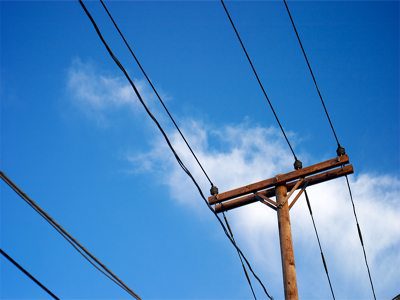A pricing battle between South Australia Power Networks and the Australian Energy Regulator is headed for Federal Court, in a last-ditch effort to by the network to pass an extra $250 million in grid maintenance and labour costs on to consumers.
State energy minister Tom Koutsantonis said on Monday that the Weatherill government was seeking legal advice on behalf of South Australian consumers after SA Power Networks – whose costs already represent more than 35 per cent of an average annual electricity bill – took its case to the Federal Court on Friday.

SAPN, the monopoly operator of the state’s poles, wires and sub stations, has asked the Federal Court to review the determination of the Australian Competition Tribunal, which last month upheld the Australian Energy Regulator’s revenue determination of $3.84 billion.
SAPN, which had sought $4.53 billion for the five-year period starting July 1 2015, asked the Australian Competition Tribunal for a merit review of the determination, arguing the AER had made errors in its decision, and seeking an additional $250 million for financing costs, labour costs and additional bushfire safety.
The involvement of the Federal Court in the case again highlights the flaws of the national merit review system, which has seen a number of the AER’s recent revenue determinations put through lengthy and messy appeals processes.
As ITK principal analyst David Leitch noted last month, the regulator remains embroiled in an epic battle with NSW network operator Ausgrid, over a determination on prices which began in 2014.
Similarly, that case has gone from the ACT to the federal court, where arguments were heard in late October. The cost of the proceedings is well over $100 million so far, and a decision is not expected until early 2017.
A review and appeal has also been brought by CitiPower/Powercor in Victoria, and is still being heard by the Tribunal. A decision on this is also expected in early 2017.
As Leitch said in separate analysis, these appeals have been “entirely opposite to the spirit of ‘better regulation’ and contrary to recommendations of a review of the appeals process…. (that) recommended a separate body to the ACT should be formed since there was wide spread feeling that the ACT review process had been frankly too legal and too one sided.
“But this was not adopted by the SCER and we have ended up with the dogs breakfast served up by the appeal outcome,” Leitch wrote.
Meanwhile, in South Australia, the state government – which has itself has faced heavy criticism for the state’s high electricity prices – says “enough is enough.”
“There is a reason why two independent national bodies have found that SAPN should not be allowed to charge South Australians more and that is because the increases they are seeking are not justified,” said Minister Koutsantonis in a statement on Monday.
“That’s why I intervened in the appeal process to make a submission to the Australian Competition Tribunal, and it’s why I will be seeking legal advice on what avenues are available make representations to the Federal Court on behalf of South Australians.
“SAPN are doing what all monopolies do – attempting to charge customers as much as they possibly can. This move by SAPN is yet another indictment of the decision by Rob Lucas and the Liberals to privatise ETSA in 1999.
“That decision locked in high prices and now we have to fight tooth and nail to prevent these companies from slugging South Australians with unreasonably high charges.”










